Growing healthy pepper plants that produce more fruits than leaves requires proper nutrition and a soil that continuously provides essential nutrients. Instead of relying on chemical fertilizers, there is a simple and effective way to prepare the soil using organic waste and natural fertilizers. This method helps pepper plants grow strong and productive throughout the season.
Preparing the Planting Area

Before planting, it is important to prepare the soil in a way that ensures long-term nutrition for the plants. Instead of planting directly in the ground or containers, this method involves using special beds. These beds look like containers but are actually open at the base, allowing roots to spread freely and water to drain properly. This prevents water from collecting at the bottom, which can cause root rot.
To start, dig a deep hole in the planting area. The size of the hole should be large enough to hold enough organic material that will decompose over time and continuously feed the plants.
Using Kitchen Waste for Natural Fertilization
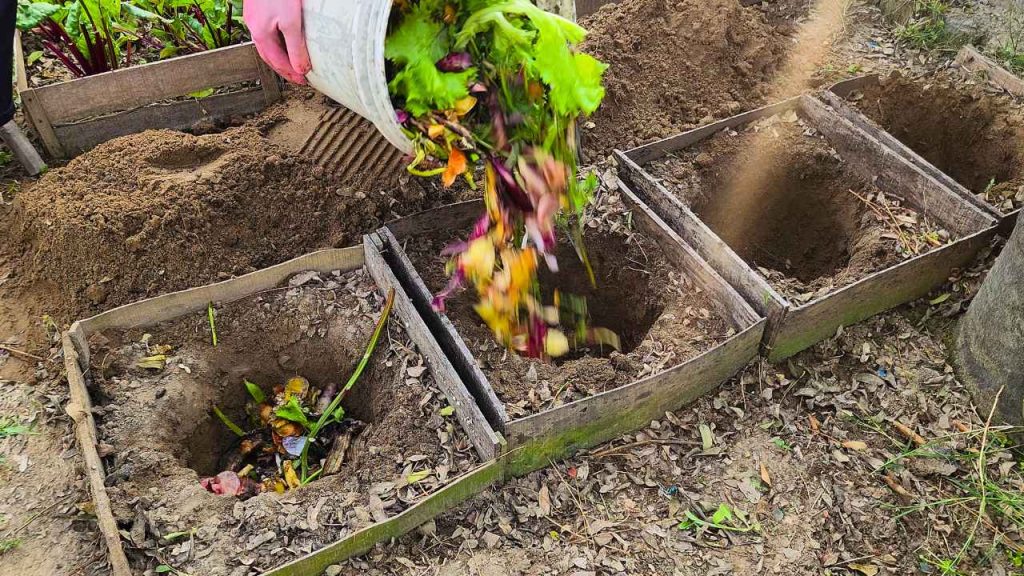
Instead of throwing away kitchen scraps, they can be used to enrich the soil naturally. Organic waste such as vegetable peels, fruit scraps, dried leaves, and other uncooked plant-based kitchen waste works best. When buried in the soil, these materials break down and release essential nutrients that improve plant growth.
This natural composting method provides a slow and steady supply of nutrients, reducing the need for artificial fertilizers. As the kitchen waste decomposes, it improves soil texture, increases microbial activity, and ensures a balanced supply of nutrients throughout the growing season.
Adding Worm Castings to Speed Up Decomposition
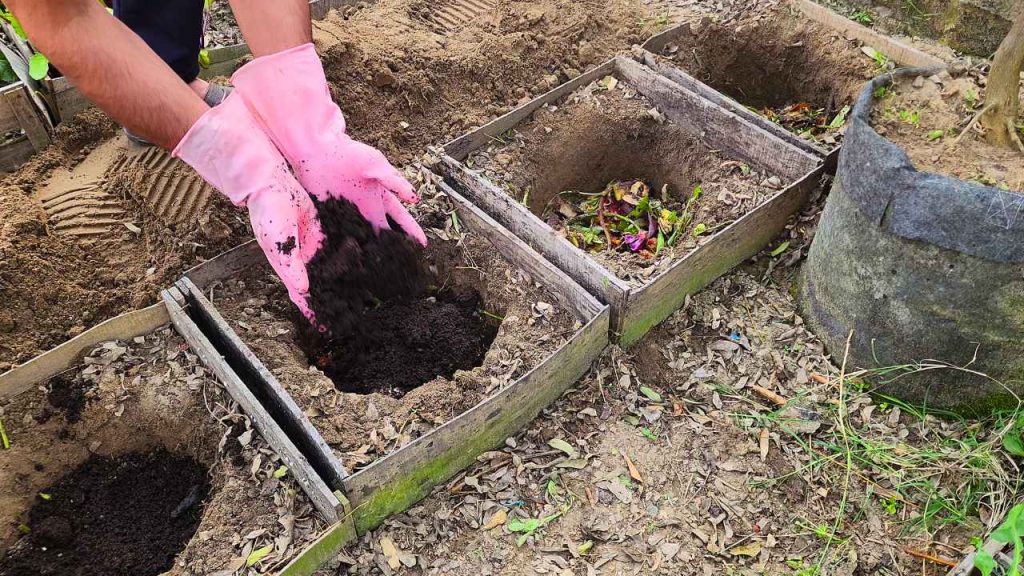
To make the decomposition process faster and more effective, a layer of worm castings is added over the kitchen waste. Worm castings are rich in beneficial microbes and essential minerals that improve soil health. They break down organic matter quickly and release nutrients in a form that plants can absorb easily.
This addition also improves soil structure, making it more aerated and better at retaining moisture. Healthy soil with active microorganisms ensures that pepper plants receive the nutrients they need at every stage of their growth.
Boosting Soil Fertility with Mustard Cake Powder
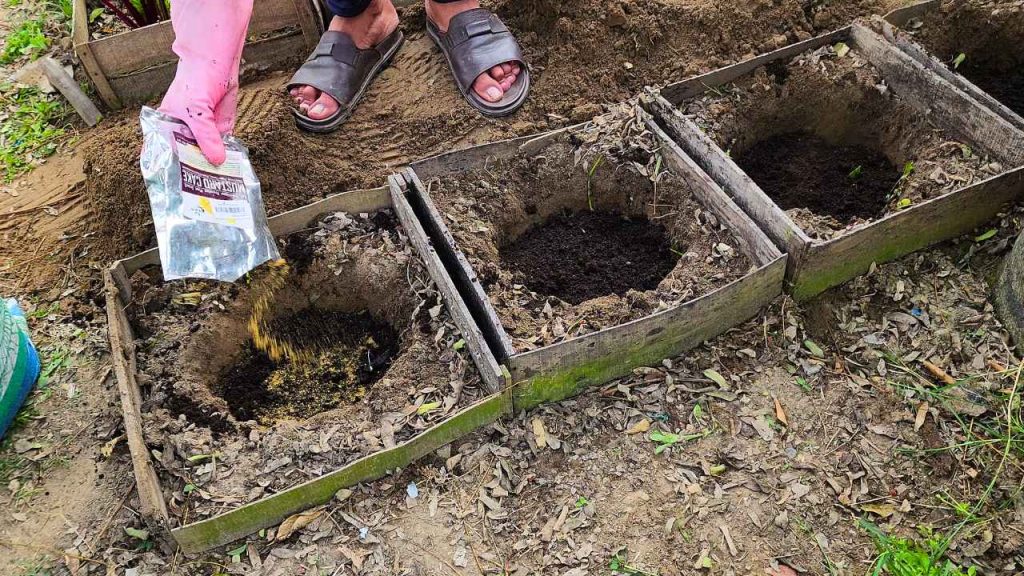
Mustard cake powder is another natural ingredient that helps improve plant growth. When sprinkled over the organic material, it provides nitrogen, phosphorus, and potassium—three key nutrients essential for strong and productive plants.
Apart from improving plant nutrition, mustard cake powder also helps keep the soil free from harmful pests and diseases. It acts as a natural pest repellent, protecting young seedlings from soil-borne infections. This step ensures that the plants grow healthier and stronger, with fewer chances of damage from insects or fungal infections.
Covering the Hole and Preparing the Bed
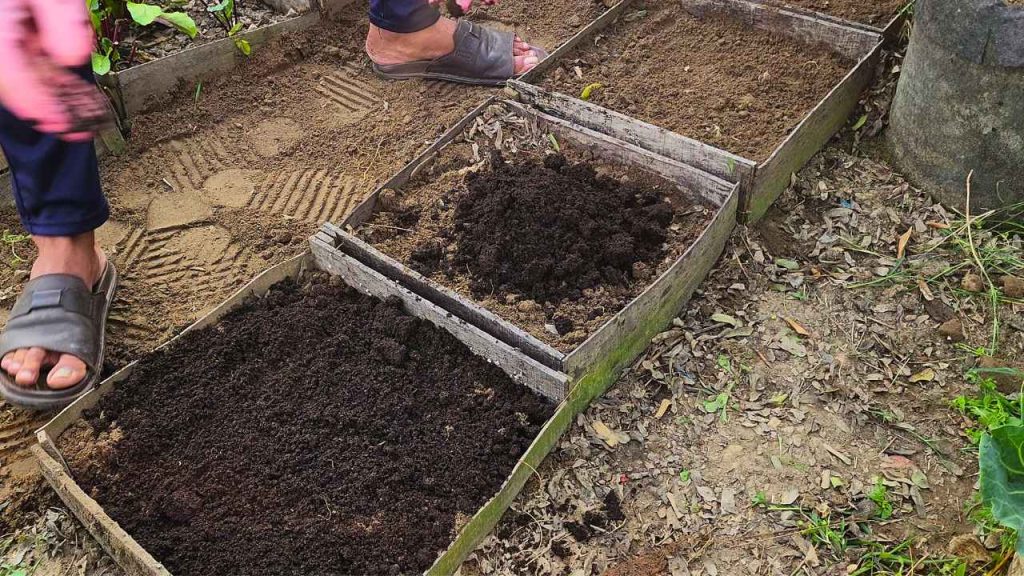
After adding all the organic materials, the next step is to cover the hole with the soil that was dug out earlier. This soil layer acts as a protective cover, ensuring that the decomposition process continues smoothly while maintaining soil moisture levels.
Once the soil is replaced, another thin layer of worm castings is added on top. This additional layer helps retain moisture, prevents soil from drying out too quickly, and continues to provide nutrients for the plants. It also improves soil texture, making it more suitable for healthy root development.
Planting the Pepper Seedlings
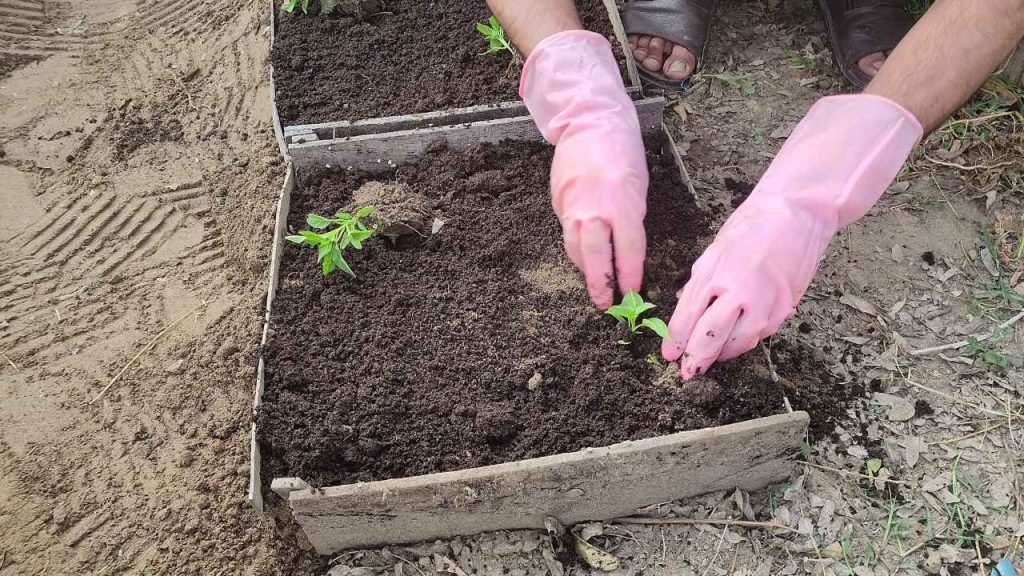
With the bed fully prepared, it is time to plant the pepper seedlings. Each seedling should be placed carefully in the soil, ensuring that it has enough space to grow properly. Proper spacing is essential, as it allows air to circulate around the plants, reducing the risk of fungal infections.
Once the seedlings are in place, the soil around them is gently pressed to secure them. This ensures that the roots are in direct contact with the nutrient-rich soil, which helps them establish quickly and start growing without stress.
Watering for Proper Moisture Balance
Watering is the final and most important step in this method. A generous amount of water is given to the newly planted seedlings to help the soil settle around the roots. This also activates the decomposition process within the soil, allowing the buried kitchen waste to break down and release nutrients efficiently.
Deep watering at this stage encourages strong root development. Once the roots grow deep, the plants become more resilient to dry conditions and can absorb nutrients more effectively.
How This Method Supports Pepper Plant Growth
This natural planting method ensures that pepper plants receive continuous nutrition throughout their growth cycle. Unlike traditional planting techniques that require frequent fertilization, this approach provides a steady supply of nutrients from the decomposing organic matter beneath the soil.
As the season progresses, the buried kitchen waste breaks down completely, enriching the soil and making it more fertile. This leads to stronger plants that focus their energy on producing fruits rather than excessive leaves. The result is a higher yield with minimal external inputs.
